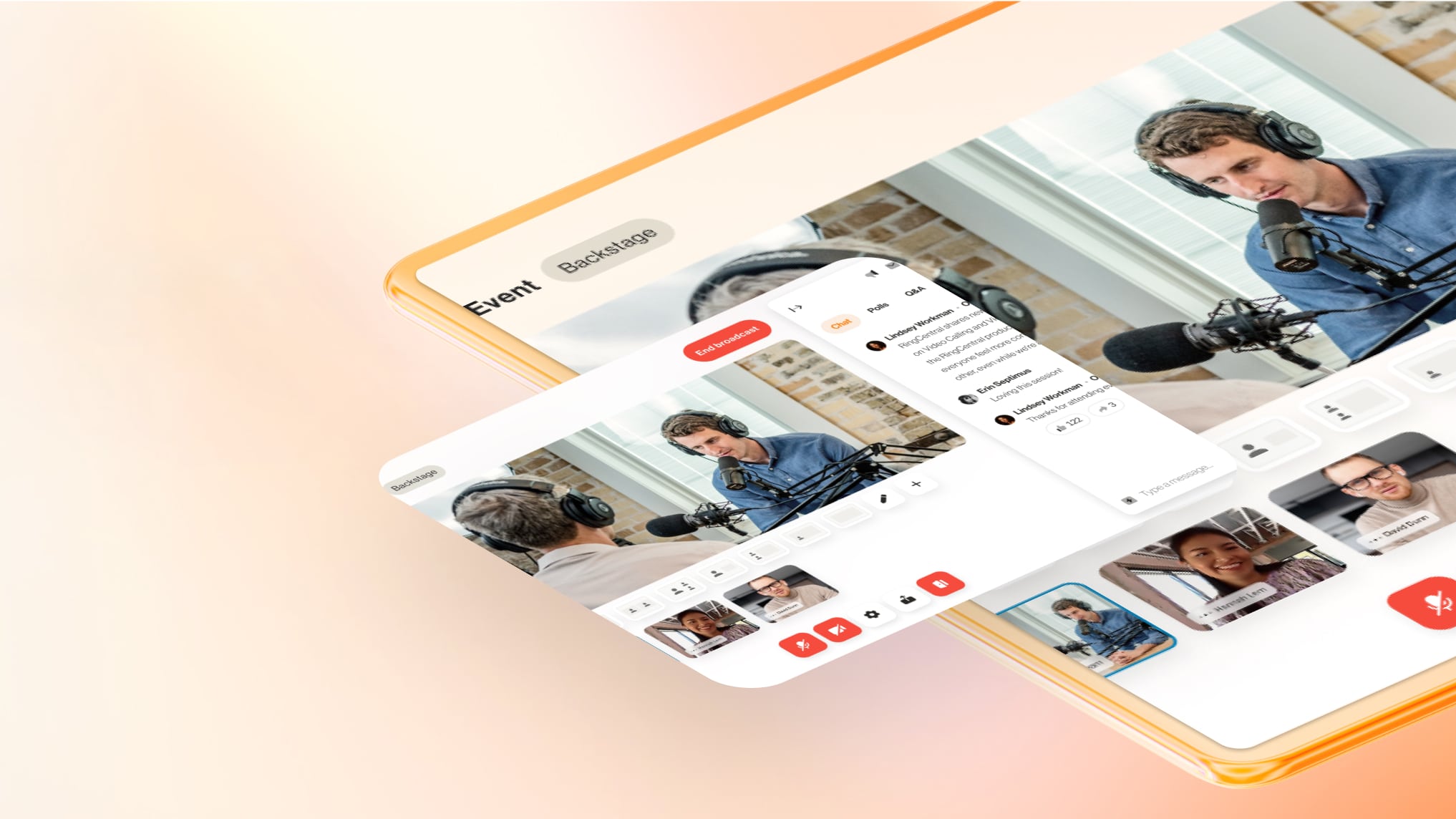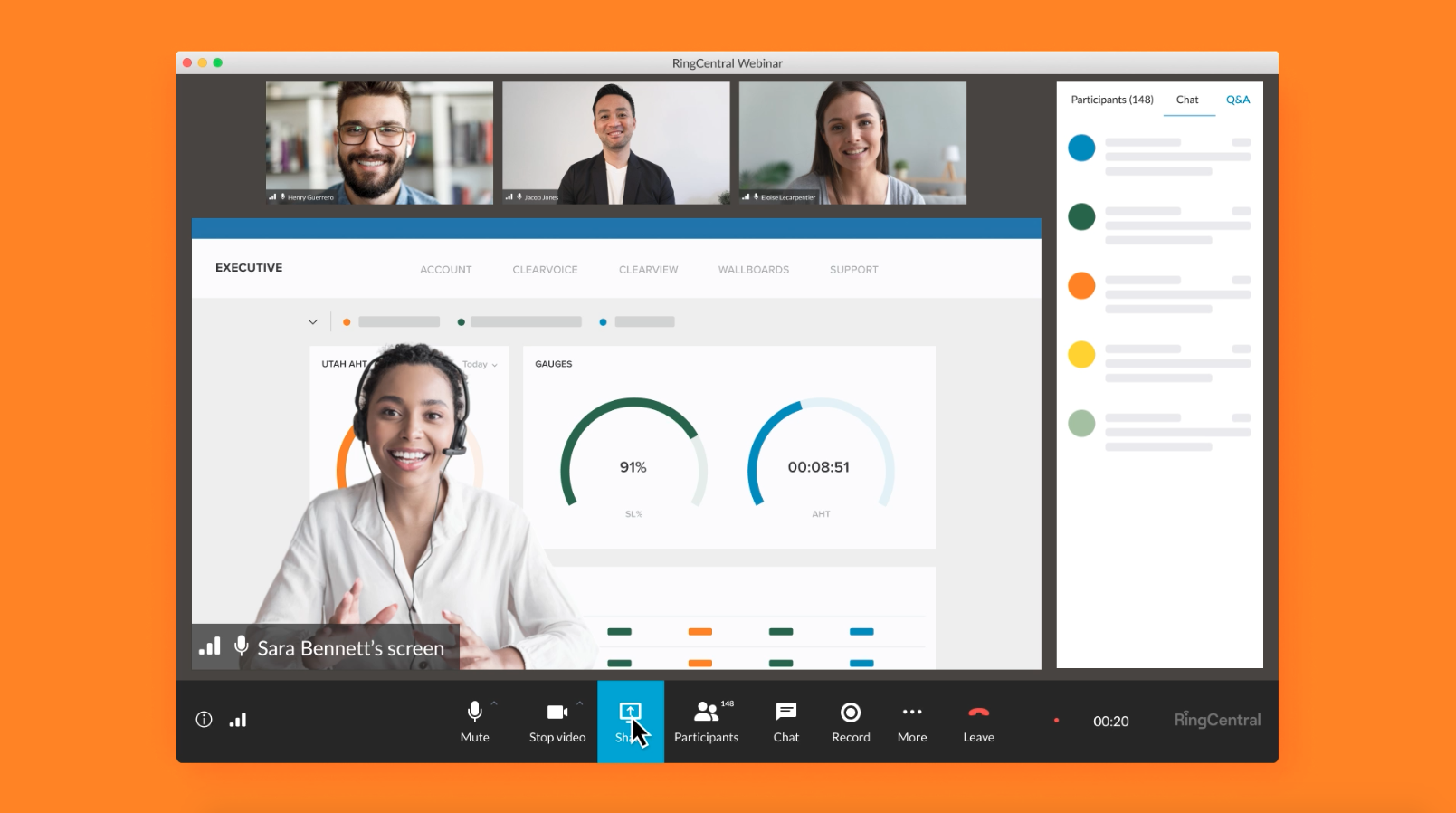Mics unclipped. Streams off. Your audience is filing out, or perhaps just hitting the “X” in the left corner of their browser. Yes, your event was a success, but now onto the big question: what next?
Post-event, there is typically a treasure trove of content and connections — from the recorded keynotes to the emails on your registration list — you have all the raw ingredients needed to keep building off the momentum of your event.
And those interactions, once the doors have closed, can positively affect various departments and stakeholders:
- Sales: Develop a pipeline or further qualify leads.
- Marketing and brand recognition: Build awareness and positive sentiments towards your brand. Gather and create shareable resources and moments to inspire interactions on social media.
- Community: Connect people with your brand and each other.
- Future event marketing: Build hype for whatever event you’re hosting next.
To get the strongest return on investment for your event, be intentional in sustaining a connection and an ongoing relationship with attendees after an event.
After-the-fact engagement can include posting event content, collecting feedback, sharing future happenings, and inviting attendees to join your community.
Post-event engagement is a long play. While it may drive some direct revenue — imagine an email recapping the event while also including merch links or early-bird tickets to the next event — it’s not just about that.
Why post-event engagement matters
There can be so many different motivations behind someone attending an event:
- To bond with people they already know
- To meet new people
- To learn from experts
- To get hands-on experience
- To be entertained
- To build careers
- To engage passions
- And so, so much more
Those goals are important before an event begins — and they’re important after an event ends, too. Savvy event organizers know that. And they tap into their audience’s desire for meaning, education, connection, and more by having a plan for how their attendees will engage with their event even after it’s over.
In a constantly-on marketing cycle — events can be an ongoing source of marketing material and can help build enthusiasm for future products and events.
And repeating your content is actually quite helpful. There are three guidelines for getting people to remember your event — and all are relevant for post-event engagement strategies:
- Honing content down to its essence
- Repeating your message at purposefully spaced cycles (like the day after an event, a week after, a month after)
- Creating opportunities for attendees to think or talk about your event, which helps them remember it
5 ways to unlock the power of post-event engagement
1. Send a thank-you.
It sounds simple, but it’s powerful. We underestimate how surprised and happy people feel when they are thanked. As it turns out, people we thank feel way more surprise and delight than we expect them to. And you can get creative in how you do it, too. A 2020 study from The Journal of Positive Psychology looked at the differences in saying thank-you in person, over a video call, or via text and found that recipients of thank-yous had positive emotions regardless of the medium.
Try opening lines like:
- We’ve got two words for you: thank you.
- [Yesterday] wouldn’t have been possible without you. Thank you.
- We planned an event — and you made it magical. Thank you for attending [X.]
2. Share event recordings and recaps.
Some of your attendees will want to repost what they saw. Other would-have-been attendees will want to know what they missed.
For the folks who missed out, access to on-demand recordings is the next best thing. Ideally, you’re using an event tech suite already set up for on-demand event recording so you can instantly reuse that content.
Top tip: It’s true that 73% of consumers prefer video when learning about a product or service, but not everyone will want video all the time. Some may want to read about your event, so think about investing in a transcription tool to create scripts from videos or write fresh summaries of what happened.
3. Atomize your event content.
You spent a lot of effort planning and producing great content. Sharing and summarizing it is one thing, but you can take it farther. Whether you’ve got recorded talks, copies of presentations, or a whole replayable event, you can use that content — either directly or indirectly — to create brand-new content that will help you drive engagement.
Keep in mind the three ways you can do this:
- Repurposing: Taking an existing piece of content and turning it into new content pieces across various formats. For example, you could pull an editorial article, social media post, and email copy from an existing video recording.
- Remixing: Combining pieces of existing content to create a new piece.
- Refreshing: Reviving decaying evergreen content with updated facts, figures, quotes, stories, and more to keep it relevant.
Using these methods allows you to drive consistent branding and messaging across all your marketing activities and channels. It also prevents content producers from having to start from scratch when it comes to creating engaging marketing materials.
And it lets you create entertaining, useful, and personalized content for all of your different audience segments — that’s key to making the most of digital content marketing.
This can take any number of forms, including:
- Podcasts. You can use event content directly, chopping a keynote into great soundbites, or you can have hosts talk about the event, including what they learned or what their favorite sections were.
- Twitter threads. Pack a lineup of tweets with links and key takeaways to keep the post-event conversation going.
- TikToks or Reels. Make a play for widening your engagement on social media by repurposing short-form-friendly video.
- Articles and blogs. Aside from a pure event summary, what written content can you create from what your event covered? For example, the article, 4 Pitfalls of Hybrid Events and How to Avoid Them was extracted from this webinar.
4. Ask for feedback.
People like giving their opinions — and those opinions can be quite valuable for your future events.
Feedback can help you:
- Identify which parts of an event you should definitely repeat — and which you can skip
- Figure out future events
- Evaluate vendors
- Gather quotes to use in event promotion
- Motivate your event team with positive attendee feedback
- Solve any negative customer experiences that you might become aware of
- And perhaps most importantly, make your customers feel like they have an active role in shaping your company and your event strategy — highlighting that their voice matters
You can gather it by:
- Sending a survey
- Setting up 1:1 phone or video interviews with attendees
- Hosting interactive polls for attendees on your event platform or social media
- Offering prizes, like merch or gift cards, for people who share their post-event opinion
Consider asking questions like:
- How would you rate the presentations you saw?
- How did you enjoy the [workshops / brainstorms / group sessions]?
- Did you find the event platform easy to use?
- Would you recommend this event to others?
5. Build a community around your event.
You can keep event attendees engaged long after your closing speeches by tapping into that goal and giving them more paths to connect.
That can look like:
- Inviting them to future events
- Creating opt-in communities, whether on Slack, email listservs, social media, or other platforms, for attendees to stay connected
- Sharing photos, quotes, and inside jokes and references to stoke the feeling that something special has been created
- Publishing stats on the numbers of connections made, like via the numbers of attendees who made use of networking features on your event platform
Taking the long view
The future of marketing — including event marketing — is all about zooming out from one-off marketing activities to focus on building real relationships. “Creating engagement value requires marketers to build purpose and communities, optimize connections, and design stories to strengthen customer relationships,” they explain.
Post-event engagement, whether directed at creating hype for specific future events or more general brand-building, is a vital part of how those relationships are built.
Contact us to find out how RingCentral Event platform can unlock engagement before, during, and after your event.
Updated Mar 13, 2025











